Beloved Enemy

Brief Synopsis
Cast & Crew
H. C. Potter
Merle Oberon
Brian Aherne
Karen Morley
Henry Stephenson
David Niven
Film Details
Technical Specs

Synopsis
In 1921 Dublin, rebel leader Dennis Riordan avoids arrest because the English do not have his description. When Lord Athleigh comes to Dublin to find a peaceful solution to "the troubles," he and his daughter Helen are saved from assassination by Riordan, who rebukes his men for not giving them a chance. At the police station, Riordan gives his own name, but is let go because they think he is joking. The next day, Helen takes an injured Irish boy home. The mother, Cathleen O'Brien, mistrusts her because her husband was killed by the English, but she soon recognizes Helen's kindness. Riordan also goes to Cathleen's, then offers to escort Helen home. She fails to realize the significance of his name, and they begin to fall in love. He wants to meet her the next day at a livestock market, but when she learns that her father's health is suffering due to concern over the rebel "Dennis Riordan," she reveals their meeting. The next day Riordan narrowly escapes capture, but refuses to believe that Helen is to blame. His friend O'Rourke is sure, however, and chastises him for agreeing to meet her again. Helen remorsefully confesses her guilt and they realize how strong yet hopeless their love is. Helen has been followed by soldiers who try to capture Riordan again, but he escapes, then vows to O'Rourke that he will never see Helen again. She does the same when her father takes her home to England. Lord Athleigh believes that war is inevitable, but is convinced by Helen to arrange for a peace conference and truce. Riordan and his men go to England, but their talks are stalemated until Helen secretly visits Riordan and convinces him that compromise is preferable to war. After a treaty is signed, Riordan returns to Ireland, but Helen soon follows when she learns that he will be killed by Irish radicals. After giving a speech in Dublin, Riordan is badly wounded by O'Rourke, but tells Helen that with peace they can now find happiness.

Director

H. C. Potter
Cast

Merle Oberon
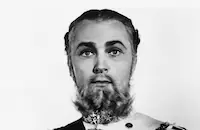
Brian Aherne

Karen Morley
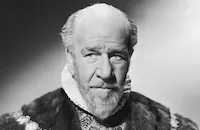
Henry Stephenson

David Niven
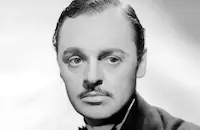
Jerome Cowan
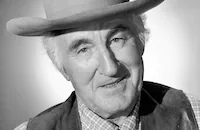
Donald Crisp

Ra Hould
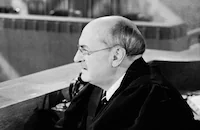
Granville Bates
R. J. Kelly
Leo Mccabe
Pat O'malley
Jack Mulhall
Claude King
Wyndham Standing
Robert Strange
Lionel Pape
John Burton
Leyland Hodgson
Frank Roan
Wally Maher
Theodore Von Eltz
David Torrence
Crew
John Balderston
Eddie Bernoudy
Robert Coburn
Richard Day
Rose Franken
Samuel Goldwyn
George Haight
David Hertz
Omar Kiam
Oscar Lagerstrom
William Brown Meloney
Alfred Newman
Harry Perry
Sherman Todd
Gregg Toland

Videos
Movie Clip




Hosted Intro
Film Details
Technical Specs

Articles
Beloved Enemy
Rebel leader Dennis Riordan (played by English actor Brian Aherne) meets Helen Drummond (Merle Oberon) when he saves the life of her father (Henry Stephenson), a British diplomat who's gone to Ireland to try to negotiate a peaceful solution to the rebel uprising. Riordan and Helen fall in love, but circumstances are against them, and when Riordan is nearly captured, the lovers agree to part. They meet again when Riordan goes to London for negotiations, and Helen convinces him to agree to a compromise for the sake of peace. After he returns to Ireland, Riordan becomes a target for Irish separatists unhappy with the agreement.
Beloved Enemy was the second film Merle Oberon made with Samuel Goldwyn. Oberon had been discovered in England by producer Alexander Korda, who put her under contract in the early 1930s. To promote her career in America, Korda sold part of her contract to Goldwyn, who starred her in The Dark Angel (1935). The performance earned Oberon her only Oscar® nomination. Her peak was probably 1939, when she appeared in Goldwyn's Wuthering Heights. She married Korda that same year.
Still recovering from gall bladder surgery and an appendectomy, Goldwyn turned over the supervision of Beloved Enemy to George Haight, although Haight was only given an Associate Producer credit. To direct, Goldwyn agreed to Haight's suggestion of hiring his former Broadway producing partner and Yale classmate H.C. "Hank" Potter. Goldwyn had employed Potter the previous year at Haight's suggestion, and Potter had been on the lot for a year with nothing to do. Beloved Enemy marked Potter's film directing debut. Potter went on to direct gentle comedies such as The Farmer's Daughter (1947) and Mr. Blandings Builds His Dream House (1948).
The two neophytes were helped enormously by the work of cinematographer Gregg Toland, whose best work (Citizen Kane, 1941) lay ahead, but who was already known for his innovative lighting and camerawork. Praising Beloved Enemy, Frank Nugent wrote in the New York Times, that "...giving it its final luster is Gregg Toland's photography which has an almost golden patina."
Two endings were shot for Beloved Enemy, a tragic one and a happy one. The film was released and reviewed with a tragic ending - Frank Nugent's New York Times review mentions the "tragically foredoomed romance," and describes the ending; so does Variety, which notes that an alternative ending was shot, but adds that "the tragic note seems consistent with the plot." Apparently, audiences did not agree. Box office was disappointing, and the ending was changed to the happy one. Reviews were mixed; Nugent's was among the most enthusiastic, calling the film "A fine and mature and dignified drama of the Irish Rebellion of 1921, it has the stamp of quality on each of its departments."
It took 60 more years for a biographical film, Michael Collins (1996), to make it to the screen, starring (real) Irish actor Liam Neeson, with Julia Roberts playing Collins' (real) fiancee Kitty Kiernan, and not an English sweetheart in sight. The film stuck more closely to the facts than Beloved Enemy did, but some critics and historians still deplored Michael Collins's historical inaccuracies.
Producer: Samuel Goldwyn, George Haight (uncredited)
Director: H.C. Potter
Screenplay: Rose Franken, William Brown Meloney; David Hertz (additional dialogue); John L. Balderston (uncredited)
Cinematography: Gregg Toland
Art Direction: Richard Day
Film Editing: Sherman Todd
Cast: Merle Oberon (Helen Drummond), Brian Aherne (Dennis Riordan), Karen Morley (Cathleen O'Brien), Henry Stephenson (Lord Athleigh), David Niven (Capt. Gerald Preston), Jerome Cowan (Tim O'Rourke), Donald Crisp (Liam Burke), Ra Hould (Jerry O'Brien), Granville Bates (Ryan), P.J. Kelly (Rooney), Leo McCabe (Connor), Pat O'Malley (Callahan), Jack Mulhall (Casey).
BW-90m.
by Margarita Landazuri

Beloved Enemy
Quotes
Trivia
Notes
Actor Wally Maher's first name is misspelled "Walley" in the onscreen credits. Love Under Fire was the working title of the picture. According to a news item in Hollywood Reporter, Samuel Goldwyn had signed the St. Luke's Choristers to perform in a wedding sequence for the film, however, there was no wedding in the viewed print and no reviews mention such a scene. According to reviews and an article in New York Times, the original release version of the film ended with the character Dennis Riordan's death, but a different, happier ending had been filmed at the same time. The viewed print and, according to modern sources, other prints that have survived, all have the "happy" ending. The exact point at which the ending was changed in national prints has not been determined, but contemporary information indicates that the picture was initially released with the unhappy ending and was shortly thereafter replaced by the other version. New York Times, which noted that exhibitors "had their choice" of which versions to show, also noted that the first version showed the suicide of the character Tim O'Rourke, while the second version deleted it, perhaps as a concession to the Roman Catholic organization, the Legion of Decency. Although modern sources have made comparisons between Dennis Riordan and the assassinated Irish leader Michael Collins, a disclaimer at the beginning of the film states: "This story is not taken from history. Rather, it is legend inspired by fact and all characters are fictional." Beloved Enemy marked the motion picture debuts of stage director H. C. Potter and actor Jerome Cowan. Actress Madeleine Carroll performed in a Lux Radio Theatre version of the story on December 27, 1937.















